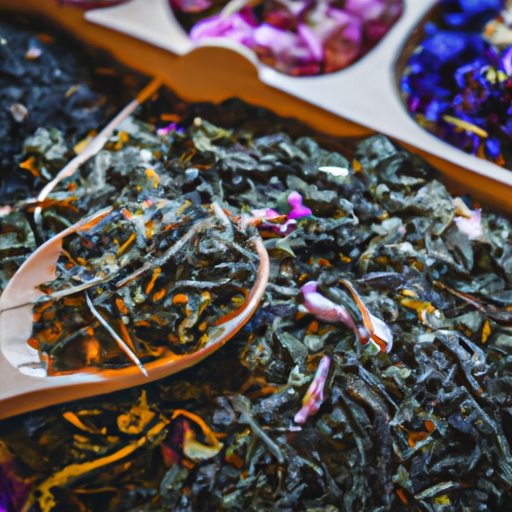Imagine a cup of rosehip tea, gently steeping and releasing its healing powers with every sip, much like the sun nourishing a garden with its warm rays.
Rosehip tea, derived from the false fruits of the rose plant, has been treasured for centuries for its remarkable health benefits. Packed with essential nutrients such as Vitamin C, tannins, pectin, and thiamin, rosehips offer a natural remedy for a multitude of health conditions.
This humble tea possesses an array of therapeutic properties, including powerful antioxidants, anti-inflammatory agents, antimicrobial compounds, and even potential anti-cancer effects.
Research suggests that rosehip tea may aid in the treatment of colon or lung cancer, while rosehip powder may alleviate pain in arthritis patients. Furthermore, rosehips from the Rosa damascena species hold promise in the battle against Alzheimer’s disease.
In this article, we will explore the myriad benefits and uses of rosehip tea, as well as provide guidance on its preparation and dosage. However, it is crucial to remember that seeking professional medical advice is essential, especially when considering herbal remedies for serious health conditions.
So, grab a cup of rosehip tea and embark on a journey towards holistic well-being and natural healing.
Key Takeaways
- Rosehip tea is rich in essential nutrients and possesses therapeutic properties.
- Research suggests that rosehip tea may aid in the treatment of colon or lung cancer and alleviate pain in arthritis patients.
- Rosehips from the Rosa damascena species hold promise in the battle against Alzheimer’s disease.
- Professional medical advice should be sought when considering herbal remedies for serious health conditions.
What is it?
I know that rosehip tea is a natural remedy made from the false fruits of a rose plant and is known for its healing properties for various health conditions. The nutritional composition of rosehips is quite impressive. They’re rich in Vitamin C, tannins, pectin, and thiamin. In fact, rosehips have higher anti-oxidative activity than blueberries, chokeberry, blackcurrant, rowan berry, and hawthorn. This makes them a powerful source of antioxidants.
Rosehip tea also has a long history and cultural significance. It’s been used for centuries in traditional medicine around the world. The most commonly used plant for harvesting edible rosehips is the wild Dog Rose or Rosa canina, but other rose plants like Rosa rugosa, Rosa rubiginosa, and Rosa arvensis can also be used.
Overall, rosehip tea is a natural remedy that offers a wide range of health benefits due to its nutritional composition and long history of use in traditional medicine.
Benefits and Uses
Rosehip tea offers a range of advantages and applications for improving overall well-being. This herbal tea is packed with nutrients, including Vitamin C, tanning, pectin, and thiamin. It has powerful antioxidant, anti-inflammatory, antimicrobial, anti-diabetic, and even anticancer effects.
In fact, rosehips have been found to have higher antioxidant activity than popular berries like blueberries and blackcurrants.
One of the great benefits of rosehip tea is its potential in treating various health conditions. It may help reduce pain in patients with osteoarthritis and rheumatoid arthritis, thanks to its anti-inflammatory properties. Rosehips from Rosa damascena have shown promise in treating Alzheimer’s disease. However, it’s important to note that rosehip tea should be avoided in estrogen-dependent tumors.
To enjoy the benefits of rosehip tea, you can try different recipes using dried or fresh rosehips. It can be steeped or boiled in water to extract its healing properties. It’s always wise to seek professional medical advice, especially if you have serious medical conditions.
Additionally, keep in mind that like any herbal tea, rosehip tea may have potential side effects, so it’s important to consume it in moderation.
Preparation and Dosage
To prepare rosehip tea, gather either dried or fresh rosehips and steep or boil them in water. There are various rosehip tea recipes available online, but the basic method involves removing the seeds from the rosehips and then simmering them in water for about 10-15 minutes. You can also use a tea infuser or tea bag to steep the rosehips in hot water for a few minutes.
The dosage of rosehip tea may vary depending on the individual and the specific health condition being addressed. It’s generally recommended to start with one cup of rosehip tea per day and gradually increase the dosage if needed. However, it’s important to note that excessive consumption of rosehip tea may lead to potential side effects such as diarrhea or stomach upset.
As with any herbal remedy, it’s always best to consult with a healthcare professional before using rosehip tea for serious medical conditions.
Frequently Asked Questions
Can rosehip tea be consumed during pregnancy?
When considering the safety of consuming herbal teas during pregnancy, it is important to exercise caution. While rosehip tea is generally considered safe, it is advisable to consult with a healthcare professional. Alternatives for overall well-being include chamomile and ginger teas.
Are there any potential side effects or interactions with medications when consuming rosehip tea?
Potential drug interactions and the safety of rosehip tea for children should be considered. It is important to consult with a healthcare professional, as rosehip tea may interact with certain medications and its safety for children is not well-established.
Can rosehip tea help with weight loss or management?
Rosehip tea may aid in weight loss or management by boosting metabolism and promoting appetite control. Its rich vitamin C content and potential anti-inflammatory effects may support a healthy weight. However, professional advice is recommended.
Is it safe to consume rosehip tea on a daily basis?
To answer the current question, it is generally safe to consume rosehip tea daily. However, safety concerns include potential interactions with medications and allergies. Recommended dosage varies, but it is advisable to consult a healthcare professional for personalized guidance.
Are there any specific storage requirements for dried rosehips used to make tea?
Storage tips for dried rosehips used to make tea include keeping them in an airtight container in a cool, dark place. To prepare rosehip tea, steep 2 tablespoons of dried rosehips in boiling water for 10-15 minutes.
Conclusion
In conclusion, rosehip tea is a natural remedy that offers a wide range of health benefits. It’s packed with nutrients and powerful antioxidants, and it has the potential to treat various health conditions such as cancer, arthritis, and even Alzheimer’s disease. However, it’s crucial to consult with a healthcare professional before incorporating rosehip tea into your treatment plan. While this herbal remedy shows promise, it’s important to approach holistic healing with caution. Remember, one sip of rosehip tea isn’t a magic cure-all, but it can be a valuable addition to a balanced and mindful approach to wellness.










